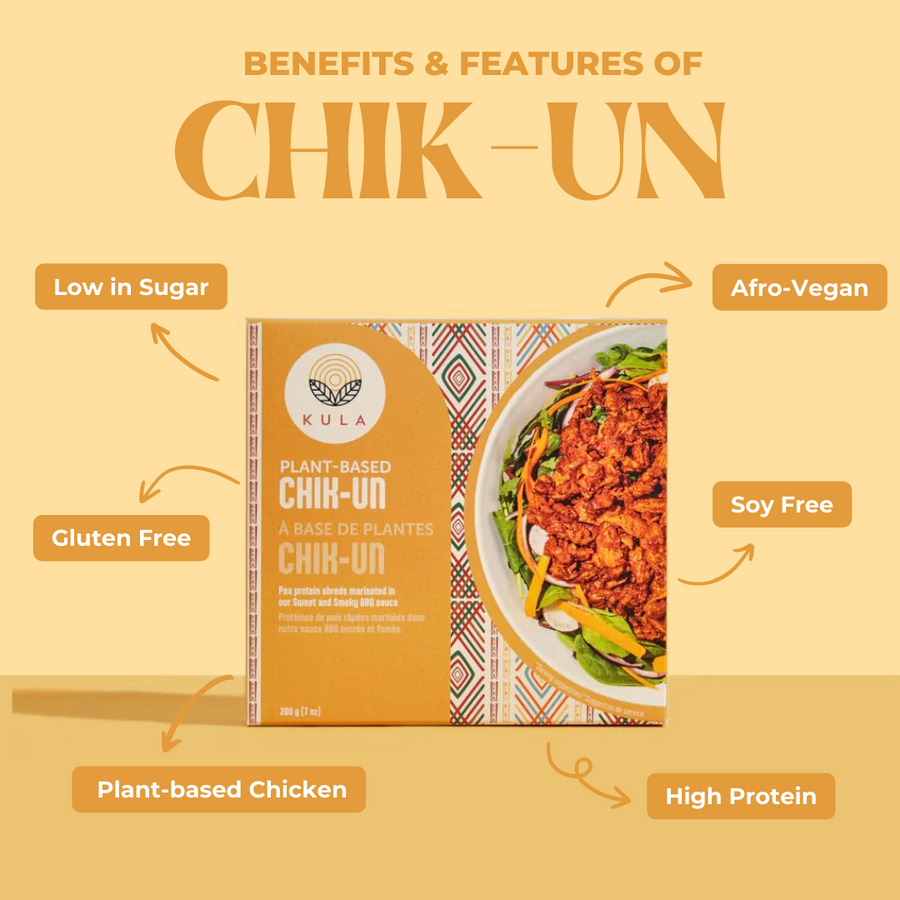The Top 5 BBQ Sauces Every Plant-Based Chef Should Stock
The Top 5 BBQ Sauces Every Plant-Based Chef Should Stock
Blog Article
Everything About Healthy Food: Benefits of Enjoying Plant Based Choices
The discussion surrounding plant-based diet plans has actually gotten considerable attention in recent years. Lots of individuals are exploring the potential wellness benefits, nutritional benefits, and environmental impacts related to these nutritional selections. As people become a lot more knowledgeable about their food's influence on well-being and sustainability, inquiries occur regarding the practicalities of taking on such a way of life. What specific changes can one anticipate, and exactly how might these choices improve not only personal wellness however also the earth's future?
Recognizing Plant-Based Diet Plans
Although many individuals link plant-based diet regimens primarily with vegetarianism or veganism, these diet regimens can include a variety of consuming patterns that prioritize entire, minimally refined plant foods. Such diet regimens commonly include fruits, vegetables, whole grains, beans, seeds, and nuts, while restricting or eliminating pet items. This flexibility allows individuals to tailor their nutritional selections according to dietary demands and personal preferences. Some might take on a primarily plant-based diet plan while still occasionally consuming meat or dairy, commonly described as a flexitarian approach. The emphasis continues to be on integrating more plant foods, which can lead to a diverse range of tastes and meals. Recognizing these numerous interpretations of plant-based eating is necessary for valuing its accessibility and charm in contemporary food culture.
Health Conveniences of Plant-Based Foods
The health advantages of plant-based foods are significant, offering a nutrient density benefit that sustains general wellness. Research study shows that these foods can boost heart wellness and play an essential function in reliable weight monitoring. By including more plant-based options, people may boost their nutritional selections and advertise lasting wellness.
Nutrient Thickness Advantage
Nutrient density plays an important duty in the health benefits of plant-based foods, making them a compelling option for those seeking a balanced diet regimen. Plant-based foods, such as fruits, vegetables, legumes, nuts, and entire grains, are usually abundant in vital vitamins, minerals, and anti-oxidants while being lower in calories. This high nutrient density permits individuals to take in fewer calories while still meeting their dietary requirements. Additionally, these foods are packed with nutritional fiber, promoting digestive wellness and assisting in weight administration. By integrating nutrient-dense plant-based alternatives, consumers can enhance their total wellness, sustain their body immune systems, and lower the risk of chronic conditions. Ultimately, the nutrient thickness of plant-based foods emphasizes their importance in a health-conscious lifestyle.
Heart Wellness Improvement

Weight Monitoring Assistance
Along with advertising heart health, a plant-based diet can substantially aid in weight monitoring. This dietary strategy stresses whole foods such as fruits, veggies, legumes, nuts, and whole grains, which are usually lower in calories and greater in fiber compared to animal-based products. The high fiber material helps raise satiety, minimizing overall calorie intake. Furthermore, plant-based diets are usually abundant in important nutrients while reduced in unhealthy fats, making it much easier to maintain a healthy weight. Plant Based Chicken. Study suggests that people that take on a plant-based lifestyle tend to have lower body mass indexes (BMIs) and experience even more effective weight-loss contrasted to those that consume meat-heavy diet regimens. Accepting plant-based options is a critical option for efficient weight management.
Nutritional Value of Plant-Based Active Ingredients
Plant-based components are abundant in important nutrients, providing a diverse range of vitamins, minerals, and antioxidants that contribute to overall wellness. A contrast of protein resources reveals that while animal items are usually deemed premium, numerous plant-based options offer sufficient protein and various other useful compounds. Understanding the nutritional value of these ingredients can help people make educated nutritional options.
Essential Nutrients in Plants
Nutrient-rich active ingredients located in plants use a diverse variety of necessary nutrients that contribute significantly to overall wellness. These active ingredients are rich in vitamins A, C, and K, which support immune feature, vision, and blood clot, specifically. In enhancement, plants supply essential minerals such as potassium, magnesium, and calcium, vital for heart wellness, muscle mass feature, and bone stamina. The presence of fiber in plant-based foods help digestion and advertises a healthy intestine microbiome. Antioxidants, found perfectly in vegetables and fruits, assistance battle oxidative anxiety and decrease swelling. Moreover, lots of plant foods are low in calories yet high in nutrients, making them an outstanding option for those seeking to keep a healthy and balanced weight while making certain excellent nutrient intake.
Comparing Healthy Protein Resources
Protein sources differ considerably in their dietary profiles, with plant-based ingredients supplying unique advantages. Unlike pet healthy proteins, which commonly contain saturated fats and cholesterol, plant healthy proteins have a tendency to be lower in these harmful parts. Legumes, nuts, seeds, and whole grains are rich in vital amino acids, fiber, vitamins, and minerals. For example, lentils supply high protein material alongside substantial iron and folate, while quinoa is a total healthy protein, supplying all 9 crucial amino acids. Furthermore, plant-based proteins are usually accompanied by antioxidants and phytochemicals that support general wellness. The change to plant-based protein resources not only enhances dietary consumption but additionally aligns with lasting dietary practices, lowering environmental influence and promoting lasting wellness benefits.
Ecological Impact of Plant-Based Consuming
As understanding of environment modification grows, lots of people are checking out sustainable dietary selections that can significantly lessen their ecological footprint. Plant-based consuming has become a considerable contributor to reducing greenhouse gas exhausts, which internet are primarily related to animals production. The cultivation of fruits, veggies, legumes, and grains commonly requires less sources, such as water and land, compared to pet farming. Furthermore, plant-based diets can cause lowered logging, as much less land is required for grazing livestock or growing animal feed. By moving in the direction of plant-based choices, consumers can support biodiversity and promote healthier ecological communities. Generally, welcoming plant-based consuming not just advantages individual wellness yet also represents a vital action towards ecological sustainability and conservation initiatives.
Overcoming Common Misconceptions
While many people acknowledge the benefits of a plant-based diet regimen, numerous mistaken beliefs often discourage them from fully embracing this way of living. A common idea is that plant-based diet regimens do not have adequate healthy protein; nevertheless, many plant resources, such as legumes, nuts, and tofu, provide enough healthy protein. In addition, some presume that this diet plan is expensive, when as a matter of fact, staples like beans, rice, and seasonal vegetables can be rather cost effective. An additional mistaken belief is that plant-based eating is extremely limiting, whereas it in fact provides a diverse selection of foods and tastes. Ultimately, lots of fret that a plant-based diet might result in shortages, yet with appropriate planning, people can obtain all essential nutrients, including minerals and vitamins, while delighting in a wide array of delicious meals.
Tips for Transitioning to a Plant-Based Lifestyle
Making the shift to a plant-based way of life can be an improving experience, though it commonly requires some guidance to browse the first my explanation modifications. Initially, people are encouraged to start progressively, incorporating even more fruits, veggies, legumes, and whole grains right into their meals while minimizing meat and dairy usage. Dish planning is necessary; preparing an once a week food selection can assist ease the adjustment and prevent last-minute harmful options. Checking out brand-new dishes and cooking approaches can additionally keep and improve the experience excitement about plant-based consuming. Furthermore, joining support system or communities can offer motivation and share useful pointers. Ultimately, remaining educated concerning nutrition assurances well balanced meals, stopping deficiencies while fostering a healthy, rewarding plant-based lifestyle.
Delicious Plant-Based Dish Ideas
Checking out scrumptious plant-based meal concepts can motivate individuals to embrace a much more healthy diet regimen. One popular choice is a passionate quinoa salad, including cherry tomatoes, cucumber, and a spicy lemon-tahini dressing. Another favorite is a full-flavored lentil stew, loaded with carrots, celery, and great smelling herbs, perfect for a comforting dinner. For breakfast, overnight oats made with almond milk, chia seeds, and covered with fresh berries give a nutritious start to the day. Furthermore, a vibrant veggie stir-fry with tofu and a variety of colorful veggies can be a quick yet satisfying meal. Luscious avocado toast on whole-grain bread, sprinkled with spices and seeds, offers an easy yet flavorful snack. These meals showcase the range and richness of plant-based eating.

Often Asked Questions
Can a Plant-Based Diet Regimen Supply Enough Healthy Protein?
The inquiry of whether a plant-based diet plan can provide sufficient protein prevails. Various resources, including beans, nuts, seeds, and entire grains, can meet healthy protein needs properly, supporting a well balanced and healthy diet regimen for people.
Are Plant-Based Diets Ideal for Kid?
The viability of plant-based diets for kids depends upon careful planning. Adequate nutrients need to be assured, including proteins, minerals, and vitamins. With proper advice, such diets can sustain healthy and balanced growth and growth in kids.
Just how Do I Eat in restaurants on a Plant-Based Diet?
Eating out on a plant-based diet plan involves seeking dining establishments with varied food selections, asking for adjustments, and exploring vegan-friendly choices. Preparation in advance and connecting dietary choices can boost the eating experience while maintaining dietary options.
What Are Usual Allergens in Plant-Based Foods?
Common allergens in plant-based foods include soy, gluten, nuts, and seeds - Sugar Free Sauces. People adhering to a plant-based diet ought to understand these allergens and read tags very carefully to stay clear of adverse responses and assure safe consumption
Can Plant-Based Diets Aid With Fat Burning?
Research study shows that taking on a plant-based diet regimen might promote weight loss due to its generally lower calorie density and greater fiber web content. This combination can enhance satiety, helping people manage their caloric intake successfully. Lots of people link plant-based diets mostly with vegetarianism or veganism, these diets can incorporate a broad variety of consuming patterns that focus on entire, minimally processed plant foods. Nutrient density plays an essential role in the health advantages of plant-based foods, making them a compelling option for those seeking a balanced diet regimen. Plant-based diets have actually been shown to significantly enhance heart health, as they often consist of elements that sustain cardio feature. In addition to advertising heart health and wellness, a plant-based diet can significantly aid in weight monitoring. An usual belief is that plant-based diet regimens lack sufficient protein; Discover More however, many plant sources, such as legumes, nuts, and tofu, offer ample healthy protein.
Report this page